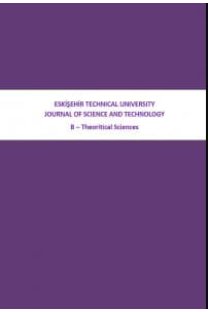DETAILING OF THE MAIN DIRECTIONS AND COMPONENTS FOR DEFINING MODELS FOR ASSESSING THE QUALITY OF KNOWLEDGE
The subject of research in the article is the perception, processing and transmission of data as one of the components used in various knowledge processing systems. Objective: to analyze such systems aimed at obtaining data, their dissemination, forming a knowledge base and conducting various assessments to determine the degree of data transformation into knowledge, the formation of adequate and simple queries to relevant knowledge bases in order to develop the necessary competence, knowledge dissemination and mastering (loss) of such knowledge during a certain period of time (phase of mastering or formation of knowledge). The following tasks are solved in the article: development of a management system from the point of view of knowledge formation in the educational process, which is reduced to a stable definition of input and output information flows, which are influenced by the "subject of knowledge" and "recipient of knowledge". These managerial influences that determine, in general, the detailing of the main directions and components for the definition of models for management in knowledge processing systems. The following results were obtained: analyzed the relevance of the scientific problem, the essence of which is that the results of the analysis in the educational process can be divided into separate levels of so-called "subjects of knowledge", such levels can be formed according to individual educational programs, courses, areas, etc. Conclusions: The developed system shows that knowledge forms the input stream, and inverse queries and responses form the output stream of the general formation of knowledge in the educational process. Consequently, the provision and development of relevant knowledge as a whole determines the general formation of knowledge, which is subject to the appropriate management influences and is one of the components of the knowledge processing management process.
DETAILING OF THE MAIN DIRECTIONS AND COMPONENTS FOR DEFINING MODELS FOR ASSESSING THE QUALITY OF KNOWLEDGE
The subject of research in the article is the perception, processing and transmission of data as one of the components used in various knowledge processing systems. Objective: to analyze such systems aimed at obtaining data, their dissemination, forming a knowledge base and conducting various assessments to determine the degree of data transformation into knowledge, the formation of adequate and simple queries to relevant knowledge bases in order to develop the necessary competence, knowledge dissemination and mastering (loss) of such knowledge during a certain period of time (phase of mastering or formation of knowledge). The following tasks are solved in the article: development of a management system from the point of view of knowledge formation in the educational process, which is reduced to a stable definition of input and output information flows, which are influenced by the "subject of knowledge" and "recipient of knowledge". These managerial influences that determine, in general, the detailing of the main directions and components for the definition of models for management in knowledge processing systems. The following results were obtained: analyzed the relevance of the scientific problem, the essence of which is that the results of the analysis in the educational process can be divided into separate levels of so-called "subjects of knowledge", such levels can be formed according to individual educational programs, courses, areas, etc. Conclusions: The developed system shows that knowledge forms the input stream, and inverse queries and responses form the output stream of the general formation of knowledge in the educational process. Consequently, the provision and development of relevant knowledge as a whole determines the general formation of knowledge, which is subject to the appropriate management influences and is one of the components of the knowledge processing management process.
___
- 1] Balas EA, Krishna S, Kretschmer RA, Cheek TR, Lobach DF & Boren SA. Computerized knowledge management in diabetes care. Medical care. 2004. P. 610–621.
- [2] Wan S, Li D, Gao J, Roy R & Tong Y. Process and knowledge management in a collaborative maintenance planning system for high value machine tools. Computers in Industry, 2017; 84, 14-24.
- [3] Wu HM, Kuo BC & Wang SC. Computerized dynamic adaptive tests with immediately individualized feedback for primary school mathematics learning. Journal of Educational Technology & Society, 2017; 20(1), 61-72.
